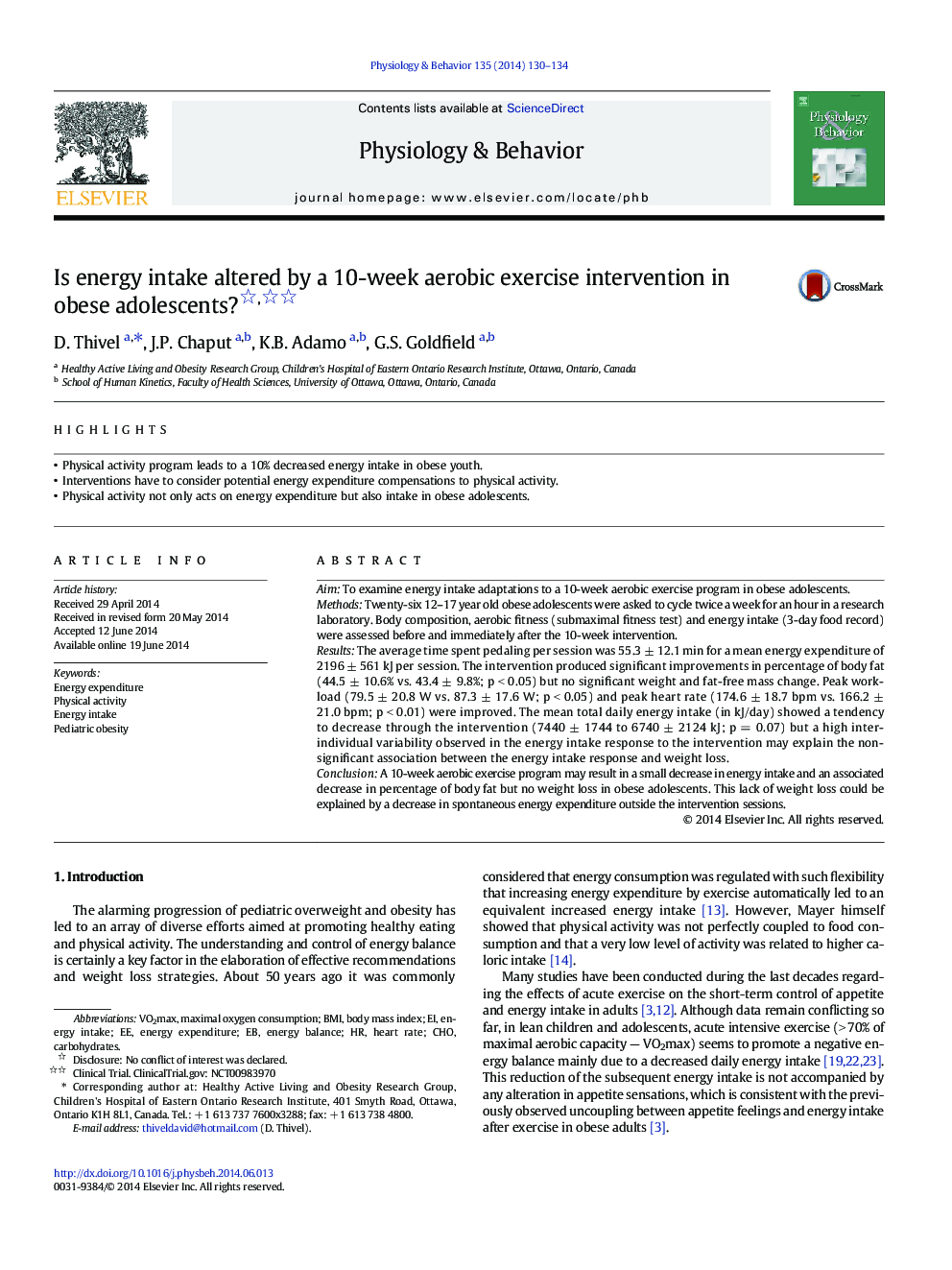| کد مقاله | کد نشریه | سال انتشار | مقاله انگلیسی | نسخه تمام متن |
|---|---|---|---|---|
| 2844254 | 1571182 | 2014 | 5 صفحه PDF | دانلود رایگان |
• Physical activity program leads to a 10% decreased energy intake in obese youth.
• Interventions have to consider potential energy expenditure compensations to physical activity.
• Physical activity not only acts on energy expenditure but also intake in obese adolescents.
AimTo examine energy intake adaptations to a 10-week aerobic exercise program in obese adolescents.MethodsTwenty-six 12–17 year old obese adolescents were asked to cycle twice a week for an hour in a research laboratory. Body composition, aerobic fitness (submaximal fitness test) and energy intake (3-day food record) were assessed before and immediately after the 10-week intervention.ResultsThe average time spent pedaling per session was 55.3 ± 12.1 min for a mean energy expenditure of 2196 ± 561 kJ per session. The intervention produced significant improvements in percentage of body fat (44.5 ± 10.6% vs. 43.4 ± 9.8%; p < 0.05) but no significant weight and fat-free mass change. Peak workload (79.5 ± 20.8 W vs. 87.3 ± 17.6 W; p < 0.05) and peak heart rate (174.6 ± 18.7 bpm vs. 166.2 ± 21.0 bpm; p < 0.01) were improved. The mean total daily energy intake (in kJ/day) showed a tendency to decrease through the intervention (7440 ± 1744 to 6740 ± 2124 kJ; p = 0.07) but a high inter-individual variability observed in the energy intake response to the intervention may explain the non-significant association between the energy intake response and weight loss.ConclusionA 10-week aerobic exercise program may result in a small decrease in energy intake and an associated decrease in percentage of body fat but no weight loss in obese adolescents. This lack of weight loss could be explained by a decrease in spontaneous energy expenditure outside the intervention sessions.
Journal: Physiology & Behavior - Volume 135, August 2014, Pages 130–134
